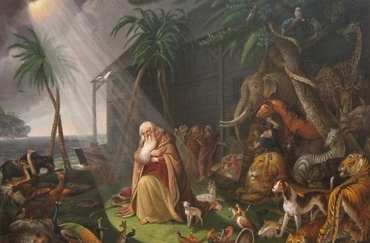1
Y MANDO Moisés, con los ancianos de Israel, al pueblo, diciendo: Guardaréis todos los mandamientos que yo prescribo hoy.
2
Y será que, el día que pasareis el Jordán á la tierra que Jehová tu Dios te da, te has de levantar piedras grandes, las cuales revocarás con cal:
3
Y escribirás en ellas todas las palabras de esta ley, cuando hubieres pasado para entrar en la tierra que Jehová tu Dios te da, tierra que fluye leche y miel, como Jehová el Dios de tus padres te ha dicho.
4
Será pues, cuando hubieres pasado el Jordán, que levantaréis estas piedras que yo os mando hoy, en el monte de Ebal, y las revocarás con cal:
5
Y edificarás allí altar á Jehová tu Dios, altar de piedras: no alzarás sobre ellas hierro.
6
De piedras enteras edificarás el altar de Jehová tu Dios; y ofrecerás sobre él holocausto á Jehová tu Dios;
7
Y sacrificarás pacíficos, y comerás allí; y alegrarte has delante de Jehová tu Dios.
8
Y escribirás en las piedras todas las palabras de esta ley muy claramente.
9
Y Moisés, con los sacerdotes Levitas, habló á todo Israel, diciendo: Atiende y escucha, Israel: hoy eres hecho pueblo de Jehová tu Dios.
10
Oirás pues la voz de Jehová tu Dios, y cumplirás sus mandamientos y sus estatutos, que yo te ordeno hoy.
11
Y mandó Moisés al pueblo en aquel día, diciendo:
12
Estos estarán sobre el monte de Gerizim para bendecir al pueblo, cuando hubiereis pasado el Jordán: Simeón, y Leví, y Judá, é Issachâr, y José y Benjamín.
13
Y estos estarán para pronunciar la maldición en el de Ebal: Rubén, Gad, y Aser, y Zabulón, Dan, y Nephtalí.
14
Y hablarán los Levitas, y dirán á todo varón de Israel en alta voz:
15
Maldito el hombre que hiciere escultura ó imagen de fundición, abominación á Jehová, obra de mano de artífice, y la pusiere en oculto. Y todo el pueblo responderá y dirá: Amén.
16
Maldito el que deshonrare á su padre ó á su madre. Y dirá todo el pueblo: Amén.
17
Maldito el que redujere el término de su prójimo. Y dirá todo el pueblo: Amén.
18
Maldito el que hiciere errar al ciego en el camino. Y dirá todo el pueblo: Amén.
19
Maldito el que torciere el derecho del extranjero, del huérfano, y de la viuda. Y dirá todo el pueblo: Amén.
20
Maldito el que se echare con la mujer de su padre; por cuanto descubrió el regazo de su padre. Y dirá todo el pueblo: Amén.
21
Maldito el que tuviere parte con cualquiera bestia. Y dirá todo el pueblo: Amén.
22
Maldito el que se echare con su hermana, hija de su padre, ó hija de su madre. Y dirá todo el pueblo: Amén.
23
Maldito el que se echare con su suegra. Y dirá todo el pueblo: Amén.
24
Maldito el que hiriere á su prójimo ocultamente. Y dirá todo el pueblo: Amén.
25
Maldito el que recibiere don para herir de muerte al inocente. Y dirá todo el pueblo: Amén.
26
Maldito el que no confirmare las palabras de esta ley para cumplirlas. Y dirá todo el pueblo: Amén.







